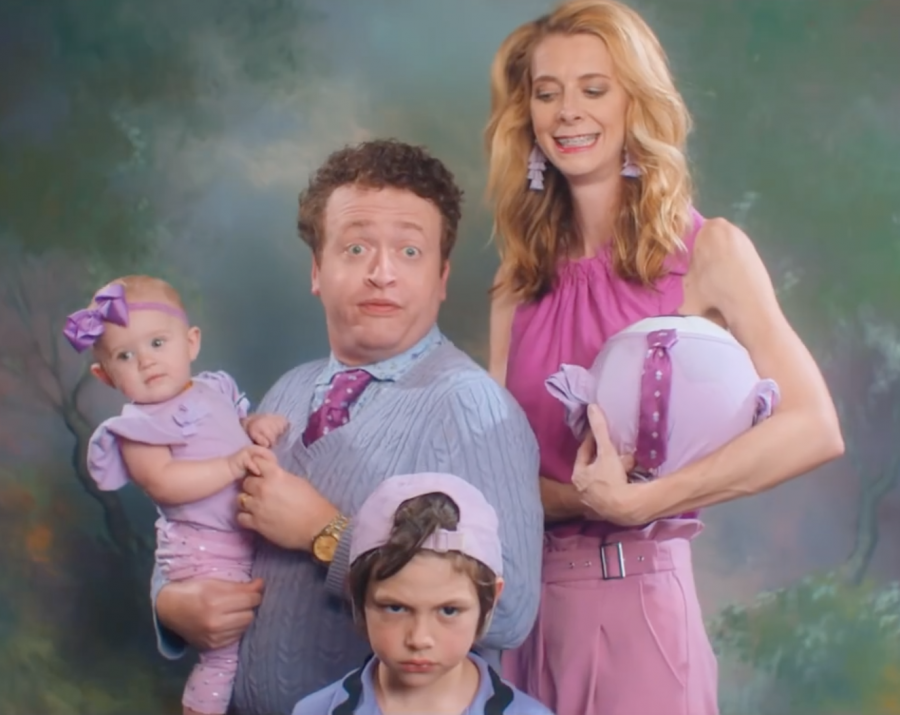Jocelyn DeBoer and Dawn Luebbe’s “Greener Grass” plays out like an over-extended SNL skit by David Lynch. Satirizing the preservation of the status quo in a listless suburban town, DeBoer and Luebbe go to extremes in highlighting the false happiness that seems to permeate the candy-colored suburbs meticulously manufactured for the screen. Every adult that populates the film comes off as a patient of the Ludovico Technique, sickened to their very core by the notion of imperfection. Wearing braces to maintain their straight smiles, color-coordinating their outfits in saturated pastels and making sure their pool water is fully oxygenated, the residents of this surreal suburbia micro-manage every aspect of their existence in order to appear perfect. Even worse, they’ve made a competition of it, silently judging each other’s efforts. Jill (DeBoer), a perfection-obsessed soccer mom, succumbs to a wave of malaise upon giving her baby to her baby-less best friend, Lisa (Luebbe), in an attempt to exalt her niceness. And just like that, her supremely generous baby-swapping act betrays her farce by branding her with a twitching smile that sends her spiraling down a rabbit hole of societally-induced madness.
It’s the first domino to topple in a long line of hilarious yet saddening incidents that drive Jill to despair, an emotion she’s unfamiliar with. Accustomed to a picture-perfect existence in which she has the perfect outfits and perfect family, the sudden jolt of remorse that strikes her as she hands her baby off chills her. The moment, which is accompanied by a pounding synth score that sounds as though it’s been lifted from a John Carpenter film, functions as a clear indicator of the suburbian hellhole.
One rather unique piano cover of “Yankee Doodle Dandy” and two shakes of a lamb’s tail later, the film only gets weirder and weirder, eventually losing its grip on the narrative once a foreign subplot involving a serial killer is introduced. Despite the overtly charming qualities of Leigh Pointdexter’s production design and Lowell A. Meyer’s scintillating cinematography, DeBoer and Luebbe seem to lose what could have made “Greener Grass” such a biting surrealistic satire á la Luis Buñuel’s “The Discreet Charm of the Bourgeoisie” by falling into overindulgence. Instead of delivering any social satire about the absurdity of a world where no one would dare ruffle each other’s feathers, we simply get a series of hilarious yet purposeless vignettes about how this type of world operates.
Lacking conceptual and narrative cohesion, “Greener Grass’s” sheer absurdity isn’t enough to keep the film afloat. The spectacle and conceptual nuggets are there, but it’s pity to see them fritter away before a meandering sense of direction. “Greener Grass” is an example of micromanagement marring ultimate vision, as the directors’ focus on small details alienates them from the film’s unresolved macroscopic themes. In spite of the disappointment, it serves as an enticing calling card for a directing duo that’s bound to break the boundaries of cinema by providing us with more wacky, surrealist trips.
Email Nico Pedrero-Setzer at [email protected].























































































































































